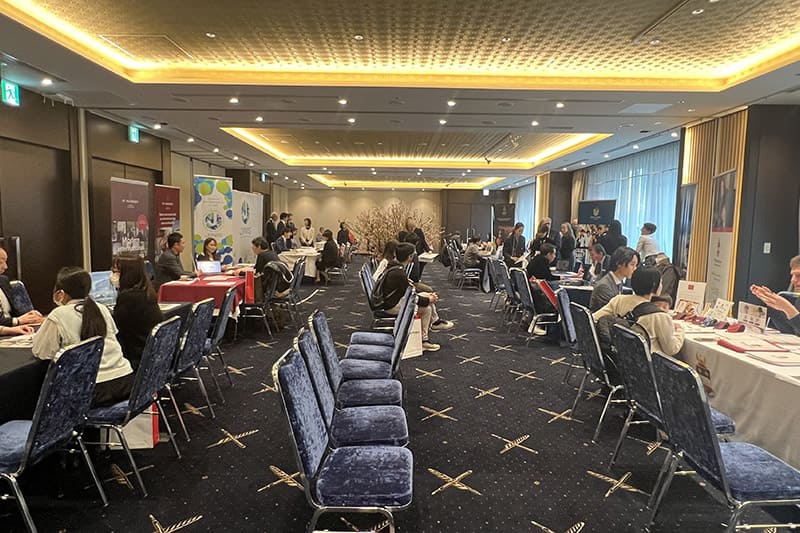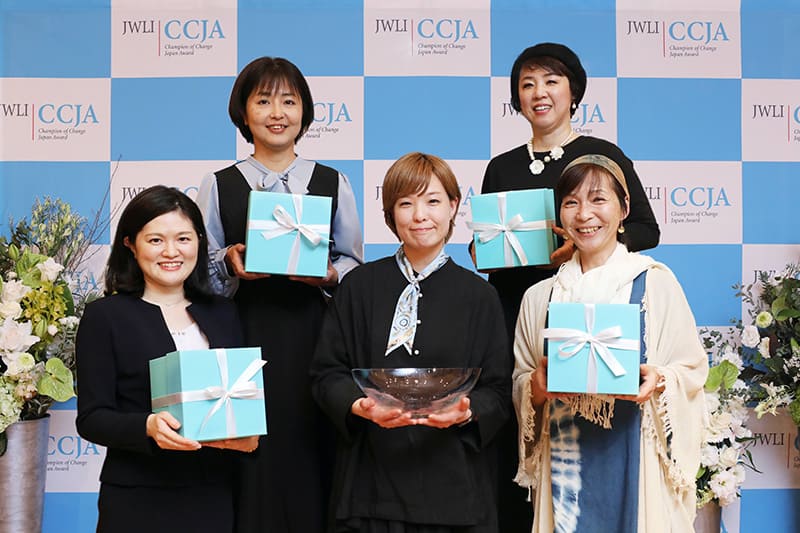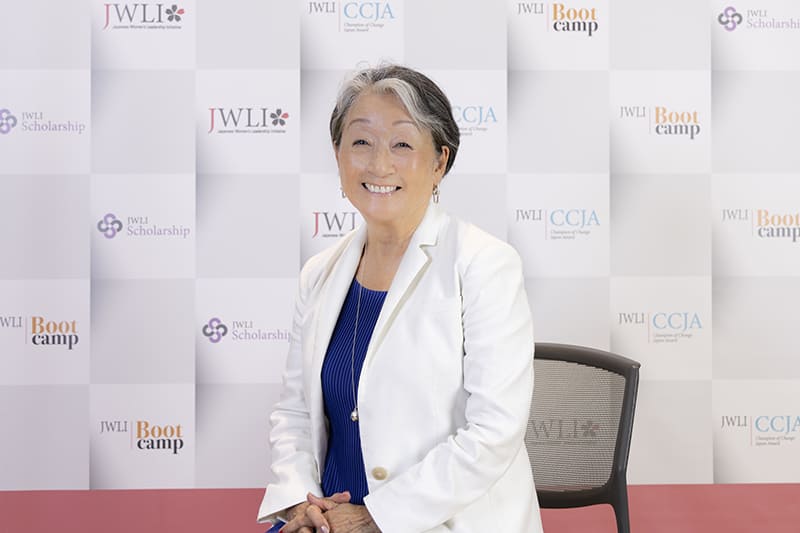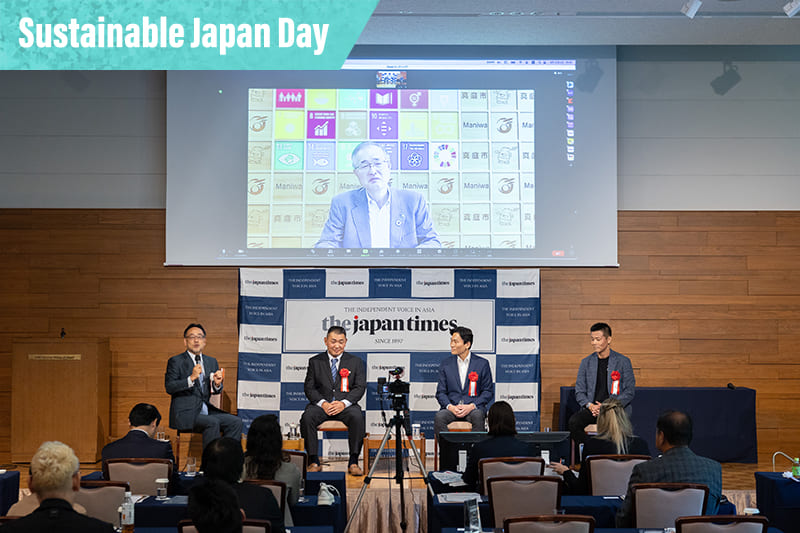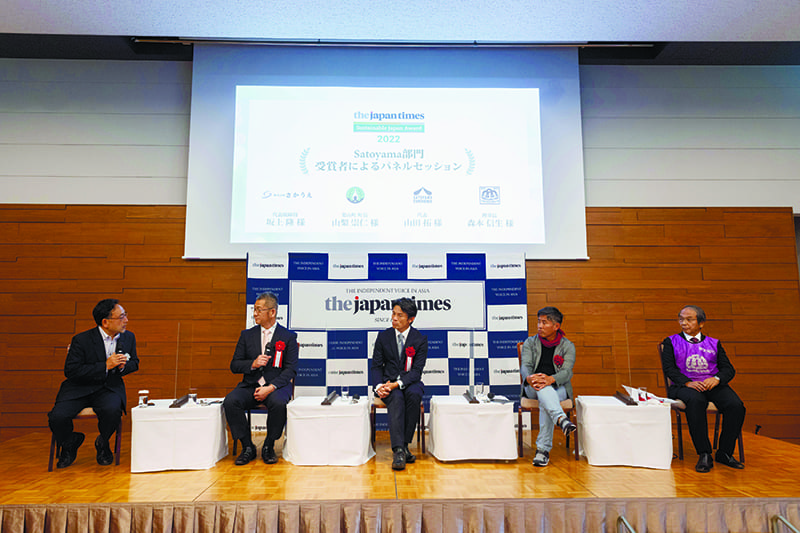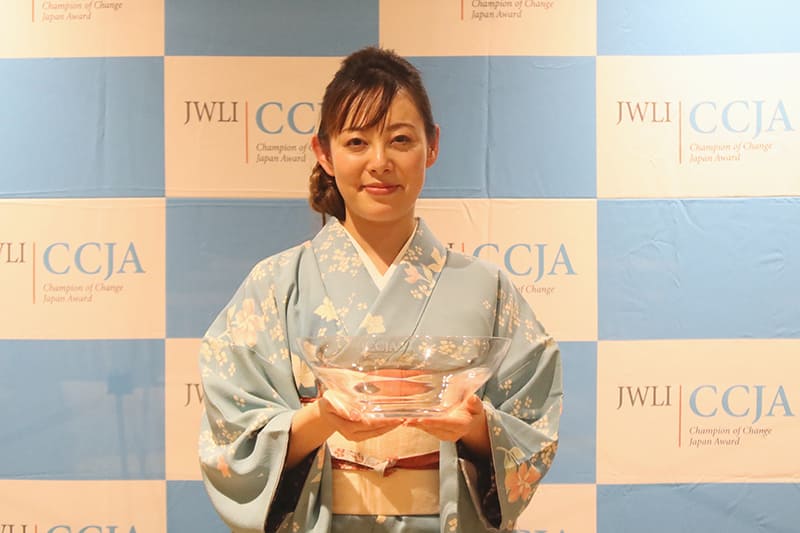March 01, 2024
Sasue Maeda Fish Shop’s owner is discerning partner to top chefs
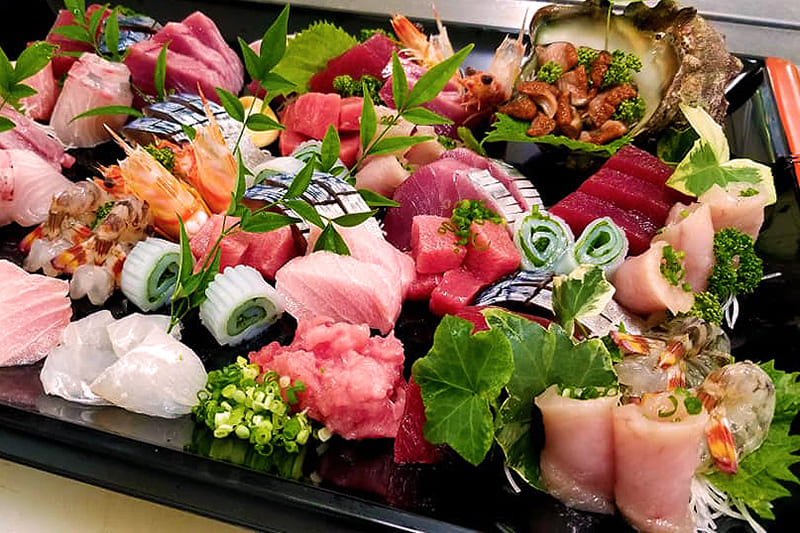
Naoki Maeda was born to know fish. Now the fifth-generation owner of Sasue Maeda Fish Shop in the Shizuoka port town of Yaizu, he pays meticulous attention to the quality of each fish and works with chefs to sell them the fish most suited to specific dishes. A fish shop is just one step of the process of getting fish from the hands of fishers to the mouths of consumers, but how that is done makes a vast difference. Even chefs from overseas are among the many people who come to Maeda’s shop to learn his techniques.
Maeda’s fish shop received the Satoyama Special Award in the Sustainable Japan Award 2023, presented by The Japan Times, for its continuous efforts in elevating the fish business to the next level by adding value that is only made possible by a polished sense and highly trained technique.
But Maeda was never an award-winning student at school. “I was a troublemaker all along,” he said with a laugh in a recent interview with The Japan Times. He either quit or soon got kicked out of all of his 20-odd part-time jobs during high school. The only place he felt satisfied was the seaside fish market, where he took a part-time job at his family’s fish shop — the only job he managed to keep for more than a month. “Old men at the fish market would praise me for coming early in the morning to work before school,” he said. “Never happened at school.”
He started working full time at the fish shop 29 years ago. But being the son of the master was not easy, especially since his father was a genuinely traditional man who taught his skills to all of his employees except his son. “I tried to eavesdrop on what he was saying to other workers and practiced on pears and konnyaku because I wasn’t allowed to touch fish yet. The only thing I was allowed to do was cleaning and removing sardines’ heads for the first year and a half,” he said.
It was the master of the traditional Japanese restaurant Tsuki no Mori, Yuzo Hasegawa, who supported Maeda all through his younger days. Maeda used to visit the restaurant and learned the master’s sophisticated cooking skills and style while talking about his problems. The master used the fish Maeda prepared for him, gave him feedback and introduced him to many of his customers.
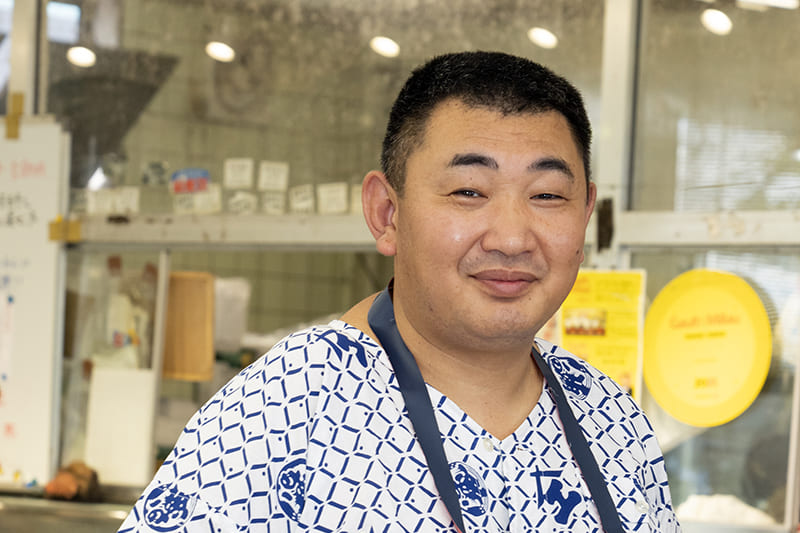
“It wasn’t just know-how that he taught me — he showed me the order of things and how to explore,” Maeda said. About 10 years after Maeda started working at the fish shop, the master of the restaurant fell ill. “I told him that I was about to start repaying him for everything he’d done for me. ‘I am glad that you intend to return the favor, but pay it forward instead. There will be people of younger generations who will rely on you and your fish, so put your mind to supporting them. It’s a man-to-man promise’ — those were his last words to me,” Maeda said.
That was why Maeda started to pour his energy into making a local restaurant, Tempura Naruse, into a highly reputed establishment attracting customers from all over the world. Takeo Shimura, its owner and chef, had been buying fish from Maeda’s shop. One day 13 years ago, Shimura showed Maeda a small red book: the Michelin Guide. Shimura said he wanted stars, and everyone laughed, but Maeda knew he was not joking. Maeda talked with Shimura every night, getting feedback on the fish used that day and looking for potential solutions to problems.
Thirteen years ago was a milestone for Maeda as well. It was the year when he went to the Tsukiji fish market in Tokyo for the first time and found that the fish he got in Yaizu could be highly competitive in markets outside the prefecture. He also met the owner of Yoshitake, a sushi restaurant in nearby Ginza, and the two got along well through their shared passion for fish. Maeda started to prepare and deliver fish to Yoshitake — and with that, his shop’s fish passed beyond the prefecture’s border for the first time in its five-decade history. Soon after the collaboration took off, the restaurant was given three Michelin stars. This fueled Shimura’s passion. Day and night, he worked with Maeda to research various kinds of fish and polished his cooking skills, and eventually Tempura Naruse became a famous restaurant that is always filled with customers from all over Japan and around the world.
Last year, Yuki Nakamura, a young chef who trained under Maeda for one year and at Naruse for eight years, opened his own restaurant, Nakamura, at Tsuki no Mori’s former location. “When Nakamura said he was looking for a place for his restaurant, I knew where it should be. I also knew that the wife of the deceased master had been cleaning the place every day even after her husband was gone,” Maeda said.
There are several other restaurants in Shizuoka Prefecture that now collaborate with Maeda as well. More than 25,000 visitors now pass through Shizuoka Station annually to reach them, including Naruse. Maeda holds workshops for foreign chefs and shares his techniques by releasing videos on online platforms. His activities will continue to contribute to the region’s revitalization and preservation and the broader dissemination of Japanese seafood culture.
The Sustainable Japan Award commends individuals, companies and organizations who have made advances in sustainable efforts. To learn more visit https://sustainable.japantimes.com/sjaward2023

